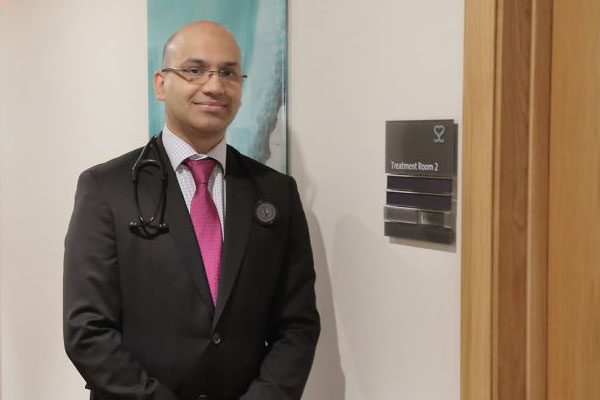
If you have been experiencing joint swelling and pain and suspect that you have rheumatoid arthritis, you will want to visit your GP to help get a diagnosis.
Your GP will discuss your symptoms. If they think you may have rheumatoid arthritis (RA), they will refer you to a specialist rheumatologist working for the NHS for a professional diagnosis.
You may have to wait a few weeks for your appointment and undergo a few tests, including blood tests, scans and a physical examination, to rule out any other causes for your symptoms before being diagnosed.
It can also help to keep a diary of your symptoms to show the specialist as RA symptoms tend to flare and then subside for a while. Triggers for a flare can include stress and anxiety, overdoing sport and exercise, or a physical job.
You may also have an inflammatory response to specific food and drinks, so it is worth keeping a food diary and noting any noticeable reactions to what you consume.
What NHS treatments are there for RA?
The NHS uses a wide range of treatments for RA, including steroid tablets or joint injections, anti-inflammatory and painkilling medication, and treatments such as DMARD therapy, diet and lifestyle changes, physical therapy, or surgery.
Biological treatments, such as etanercept and infliximab, are newer treatment used by the NHS for rheumatoid arthritis. They work by stopping particular chemicals in your blood from activating your immune system to attack your joints.
Your specialist may prescribe a non-steroidal anti-inflammatory drug (NSAID)such as ibuprofen, naproxen or diclofenac. These medicines help relieve pain and reduce inflammation in the joints, although they will not stop rheumatoid arthritis from getting worse over time.
Supportive treatments
As well as following a medical treatment plan using medication or surgical intervention, your specialist may also recommend you follow a long-term management plan for your condition.
This can include referring you to other services to help control and manage your symptoms, such as a physiotherapist who will help you improve your muscle strength and fitness levels to help keep your joints flexible and working correctly.
You also may be given a gentle exercise and mobility plan to follow at home. This will involve performing daily activities to keep your joints supple, flexible and robust.
Seeing a private rheumatologist
Suppose you have been experiencing joint pain and swelling that doesn’t seem to get any better and affects your quality of life. In that case, you can go down the route of seeing your GP for a referral to an NHS rheumatologist, which can take anything up to 18 weeks, or you can get the help you need sooner by going private.
You will get easier and quicker access to the healthcare you need when you book a private consultation with Dr Naveen Bhadauria. You will be seen in a private, comfortable environment, and you will know that the diagnosis and treatment you get will be personally tailored for you by one of the UK’s leading consultant rheumatologists.
Why not get in touch with Dr Naveen Bhadauria and his team to book your consultation at the London clinic that is closest to you.
Article by Dr. Naveen Bhadauria



